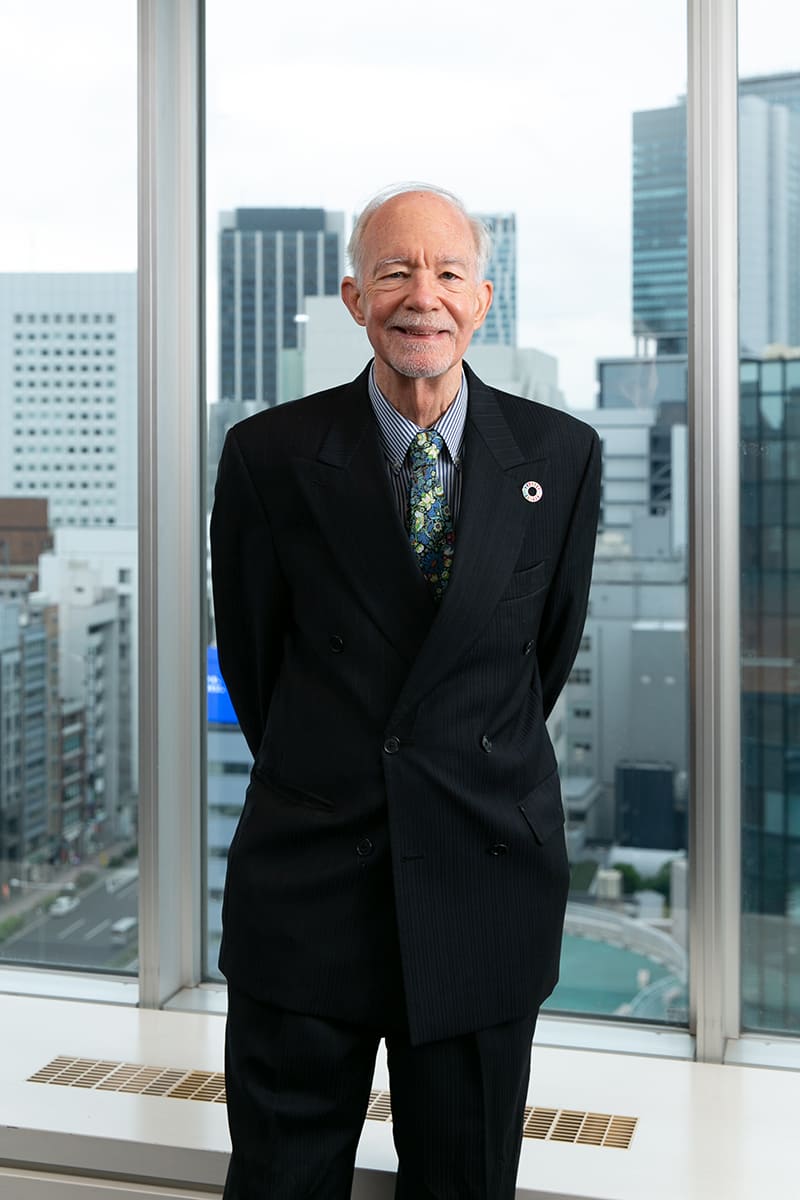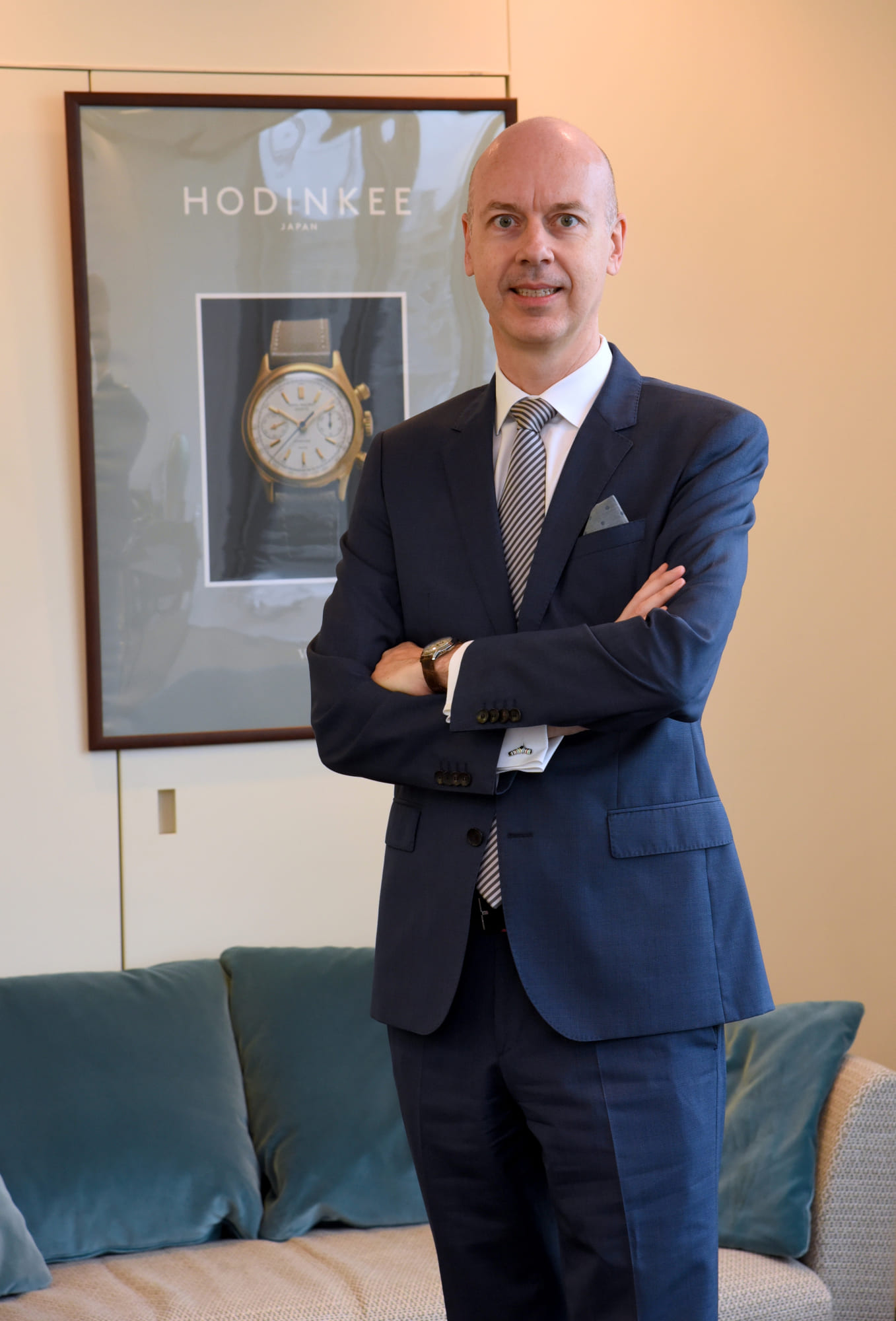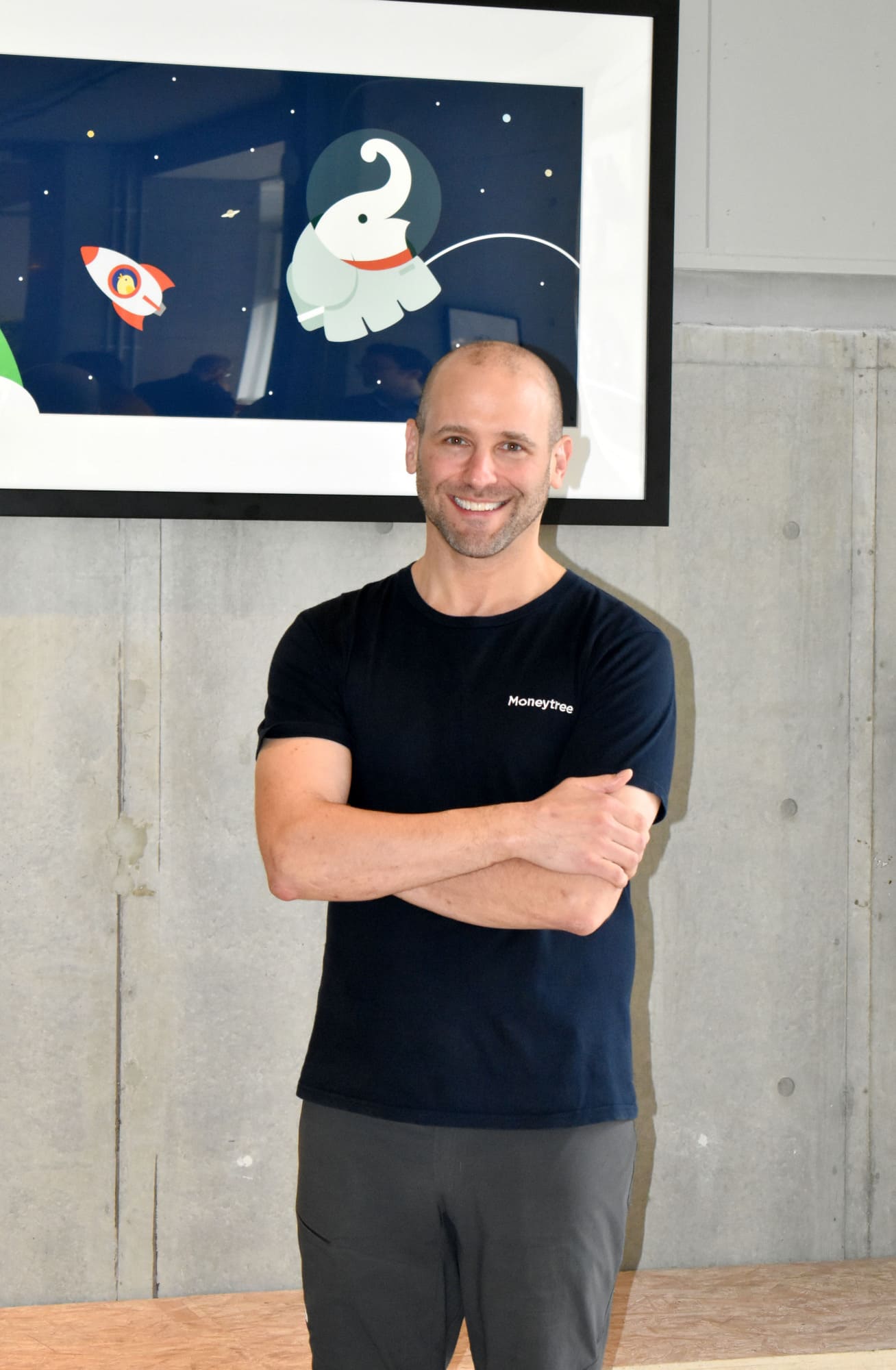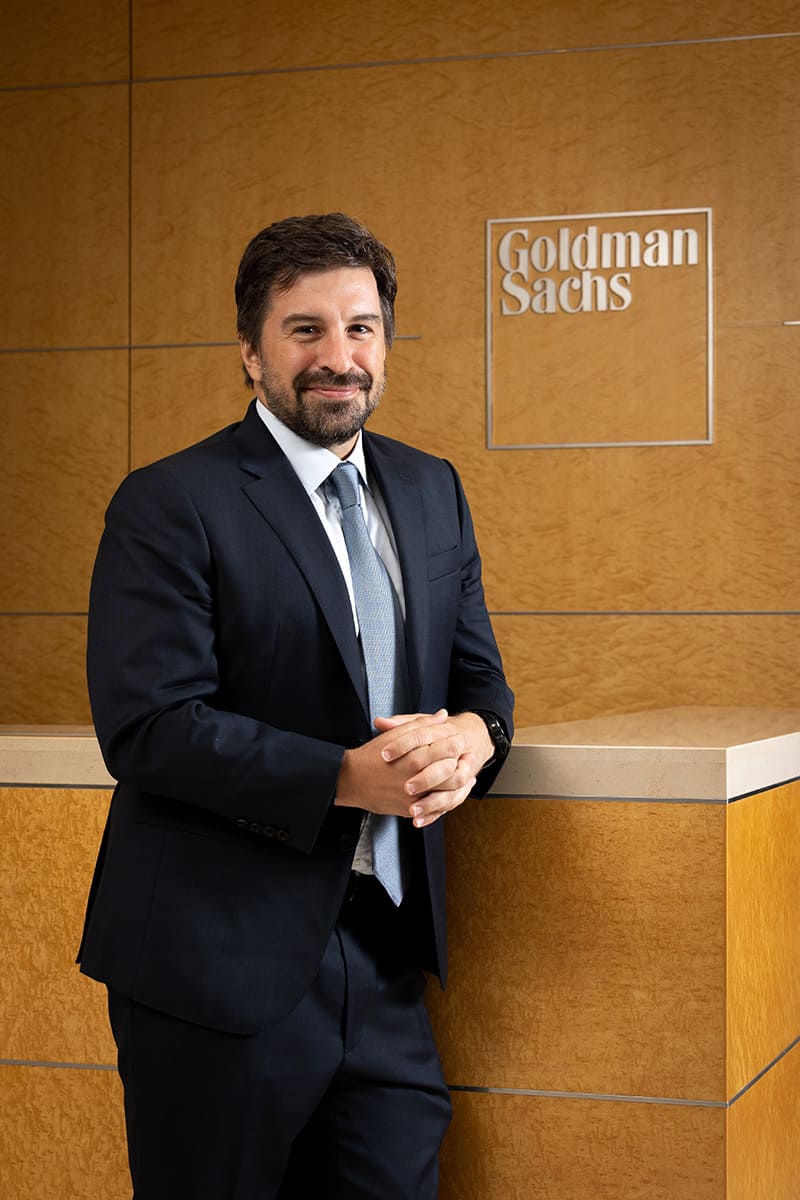
September 17, 2021
Goldman partner Ben Ferguson in it for long term
Banker sees virtuous psychology-finance loop to low-carbon future
- Name: Ben Ferguson
- Title: Head of Goldman Sachs Asia Pacific Equities and co-head of Japan Securities Sales
- URL: https://www.goldmansachs.com/japan/
- Hometown: Cleveland, Ohio
- Years in Japan: 23
In 1998, Japan’s government began implementing its “Big Bang” financial reforms, a three-year program to open up financial markets to foreign investors. That same year, Ben Ferguson, an American who had just graduated from university, got his start at Goldman Sachs Japan.
Growing up in the 1980s, Ferguson developed a fascination with Japan, which at the time was a target of scorn for many Americans. The U.S. seemed to be on the losing side of an intense economic rivalry with the country, and Toyota and others were being blamed for stealing car sales and U.S. jobs. Television stations aired reports of outraged autoworkers smashing Japanese cars with baseball bats.
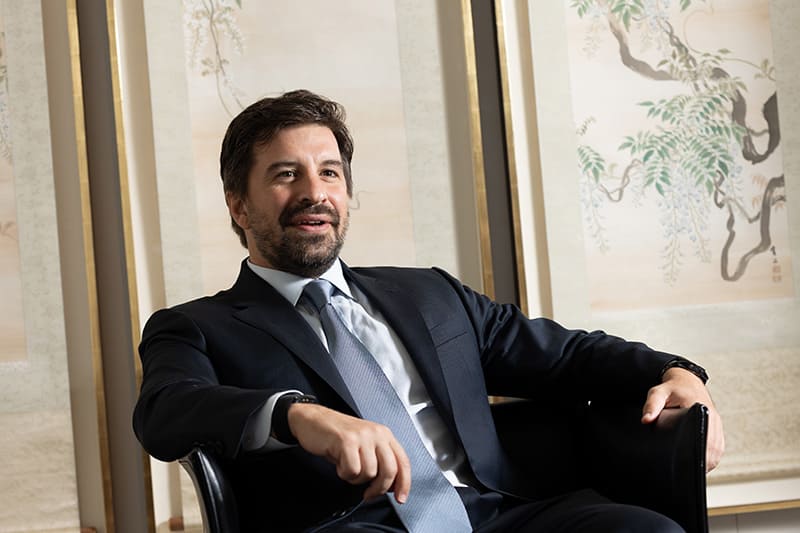
“Japan was an enigma to me growing up in the Midwest,” he said during an interview via Zoom. “I really felt like I had to figure out what was happening. I was intrigued by Japan and their economic model.”
Ferguson’s desire to understand the economic dynamic between the U.S. and Japan has since flourished into a nearly twenty-five year career in the financial industry.
When asked about what has kept him in Japan, Ferguson cited the endless discoveries and challenges that come with the culture. “It felt like I had jumped on a spaceship and gone to a different planet,” he said. “I found every day fascinating. There was an incredibly steep learning curve, whether in terms of language, society or culture. All those things made every day feel like an exciting new challenge, and I think that sense of reward is what kept me in Tokyo.”
When Ferguson graduated, he sought out employment. However, his job search was a bit unusual. Rather than cast a wide net in search of prospective employers, he set his sights on one firm. He would only settle for a job with Goldman Sachs.
“I made one of those terrible decisions to put all my eggs in one basket and apply to one firm. I was focused on getting a job at Goldman. I wasn’t going to take no for an answer,” Ferguson said before revealing that he had indeed received “no for an answer a few times for different positions.”
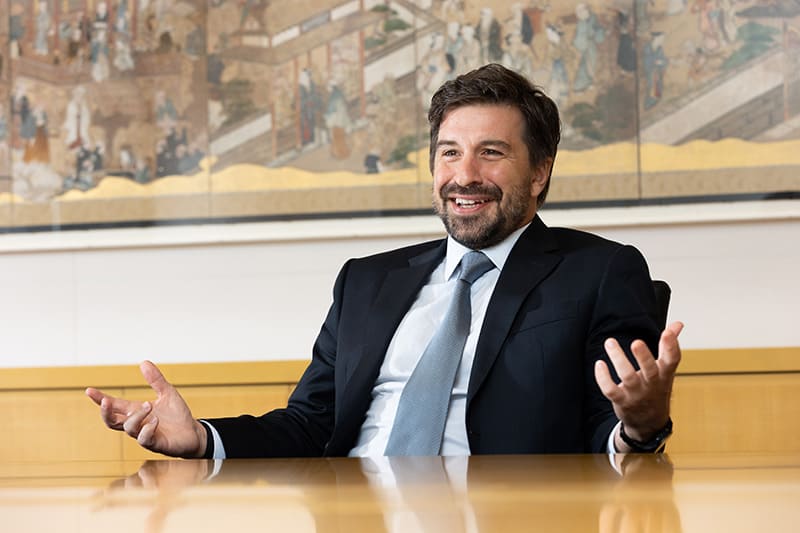
In 1998, Ferguson finally landed a position at his dream employer as a financial analyst in Tokyo on the convertible bond desk. His introduction to the financial industry brought an immense amount to learn. “It was like drinking from a firehouse when I joined the firm,” he recalled. “Every day you were learning, and it was as if the people around you were speaking a foreign language. In my first year in the industry, I thought they were going to tap me on the shoulder and say, ‘Hey, sorry, we got the wrong Ferguson.’”
Ferguson entered Goldman Sachs with an interest in development economics. He wanted to understand which economic models drive growth, and how countries emerge from poverty. As he familiarized himself with the industry, however, he shifted his interest to the “micro side” of the field: why some businesses succeed and others fail, and why markets respond in certain ways. These questions have been a source of intellectual stimulation for him throughout his career. “I wanted to be in the industry as long as it was interesting and challenging, and it never ceased to be,” he said.
A through line in Ferguson’s interests is the relationship between finance and psychology. He noted how belief in a company’s success or failure among investors can lead to significant, tangible outcomes. As an example of this dynamic, he cited a recently listed technology company with a market capitalization already in the billions despite having only recently turned a profit. “Even a small amount of dilution (when a company issues new shares, reducing the ownership percentage for existing stockholders) basically wipes out all of the company’s debt,” he explained. “If you rewind 10 years, there were moments when they had a very levered balance sheet and there were questions of whether or not they were going to make it. Now they are one of the most valuable companies on the planet — that’s psychology.”
The relationship between psychology and finance will play a significant role in the transition to a low-carbon economy, he said. “There’s this virtuous loop that’s starting to kick in now. At the most basic level, megabanks don’t want to be seen lending to project finance that’s developing coal plants or palm-oil-burning plants in Indonesia. All these banks have shareholders that don’t want to be seen as driving things that will have negative effects for the environment and for climate change.”
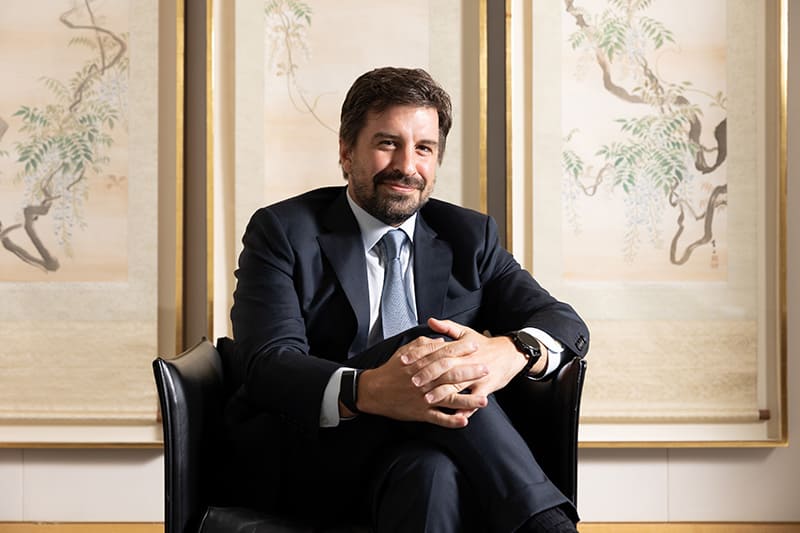
Ferguson explained that these psychological tailwinds, which effective government policy can accelerate, will result in more available capital for renewable projects such as solar and wind, and less for projects that do not meet ESG (environmental, social and governance) standards.
This incentive alignment between finance and sustainability has given Ferguson a new perspective on his career. “The cynic thinks that banks will do what’s in their own interest, and while there’s some truth to that statement, the beauty of this is that our firm’s interests align perfectly with driving ESG. There’s no shame for us in pursuing our interests, as it helps address a pressing need in society.”



